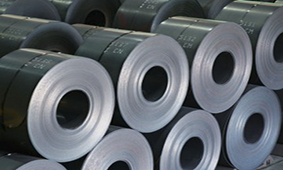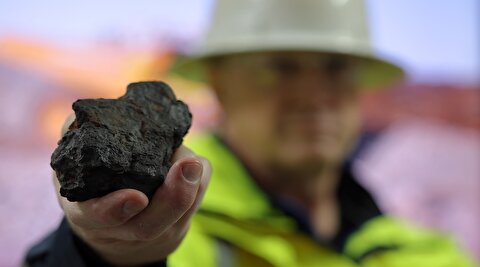
EU HRC: Fragility increasing

Italian mills still suggest that they are not being affected by the coronavirus quarantine, but the tighter controls now in place could soon impact logistics, and perhaps output.
Argus' daily northwest European HRC index slipped by €1.25/t today to €482/t ($551.60/t) ex-works, while the Italian index was static at €443.50/t ex-works.
Both have risen by around €60-70/t since hitting lows in October and the first half of November, supported by sweeping output cuts, with crude steel production in the EU falling by over 11pc on the year in November-January.
But prices in northwest Europe and Italy appear to have stabilised over the past two weeks, hovering just above €480/t ex-works and €440/t ex-works, respectively. Market leaders in both regions have been pushing for further price rises — with ArcelorMittal on 6 March saying it will now target €520/t ex-works in northwest Europe, and Italian mills looking for a minimum of €460/t ex-works — but the likelihood of further increases looks questionable.
Downstream demand had shown some signs of recovery, with sheet prices increasing, especially in Germany and to a lesser extent in Italy. But the spread of coronavirus and the accompanying uncertainty have bitten into demand, forcing small and mid-sized buyers to postpone purchases in fear of further softening in demand and price.
At the same time, there is concern that the European automotive industry will be hit hard by coronavirus, as consumers postpone non-essential purchases such as cars. The European Automobile Manufacturers' Association (ACEA) recently told Argus that it was not in a position to comment on the expected effect of coronavirus on the market, but today its Chinese equivalent CPCA said it expects an 8pc fall in the country's 2020 passenger car sales.
The negative forecast in China is having an impact on Europe — Chinese authorities can and have moved more quickly to prevent an industry impact, so some expect a more pronounced effect on the European market.
The Saudi Arabia-led slump in oil prices today is also constraining bullish sentiment, and causing key currencies to weaken and fluctuate. The dollar was trading at $0.875:€1 this afternoon, down from a multi-year high of $0.927:€1 on 20 February.
This is making import prices in Europe increasingly more competitive. At offers of $490/t fob Turkey, imports into the south of Europe would now price under €450/t cif, and with lead times near to those of Italian producers. Traders are offering €455/t cfr Antwerp for open-origin material, as they are confident of being able to source below this level from Turkey or Asia. Despite the increasing discount to domestic material, certainly in the north, it is unlikely that buyers will want to purchase even medium-sized lots in the current market situation, amid expectations that prices are going to have to decrease more.
Northwest European steelmakers are still able to achieve €480/t ex-works and above for prompt deliveries — although most now have extended lead times — but buyers who can afford to wait are bidding lower for late second-quarter deliveries.
Service centres are bidding around €460-470/t ex-works for base specification HRC, just as some mills are firming their offers. As well as ArcelorMittal, another mill said it is now targeting €490-500/t ex-works, but admitted that service centres would struggle to pass off this further increase to customers given the lucklustre demand.
Hot-dip galvanised remains tight, with one steelmaker targeting €580/t ex-works for base grade DX51D, while others are trying to achieve €600/t ex-works for the same specification. One large buyer said it is not difficult to source material, but most still agree that availability is more limited in this segment.
CME launch
The Chicago Mercantile Exchange (CME) launched its north European HRC futures contract today. The contract will settle against the average of Argus' northwest European HRC index.
The lack of a market-making programme means that most trade is likely to take place off-screen, but there is demand from participants to hedge their exposure. One mill is already gearing up to use the contract, while some key banks and traders are finalising their set-ups to trade.


Gold price edges up as market awaits Fed minutes, Powell speech

Glencore trader who led ill-fated battery recycling push to exit

Emirates Global Aluminium unit to exit Guinea after mine seized

UBS lifts 2026 gold forecasts on US macro risks

Iron ore price dips on China blast furnace cuts, US trade restrictions

Roshel, Swebor partner to produce ballistic-grade steel in Canada

US hikes steel, aluminum tariffs on imported wind turbines, cranes, railcars

EverMetal launches US-based critical metals recycling platform

Afghanistan says China seeks its participation in Belt and Road Initiative

First Quantum drops plan to sell stakes in Zambia copper mines

Ivanhoe advances Kamoa dewatering plan, plans forecasts

Texas factory gives Chinese copper firm an edge in tariff war

Pan American locks in $2.1B takeover of MAG Silver

Iron ore prices hit one-week high after fatal incident halts Rio Tinto’s Simandou project

US adds copper, potash, silicon in critical minerals list shake-up

Barrick’s Reko Diq in line for $410M ADB backing

Gold price gains 1% as Powell gives dovish signal

Electra converts debt, launches $30M raise to jumpstart stalled cobalt refinery

Gold boom drives rising costs for Aussie producers

First Quantum drops plan to sell stakes in Zambia copper mines

Ivanhoe advances Kamoa dewatering plan, plans forecasts

Texas factory gives Chinese copper firm an edge in tariff war

Pan American locks in $2.1B takeover of MAG Silver

Iron ore prices hit one-week high after fatal incident halts Rio Tinto’s Simandou project

US adds copper, potash, silicon in critical minerals list shake-up

Barrick’s Reko Diq in line for $410M ADB backing

Gold price gains 1% as Powell gives dovish signal

Electra converts debt, launches $30M raise to jumpstart stalled cobalt refinery

















